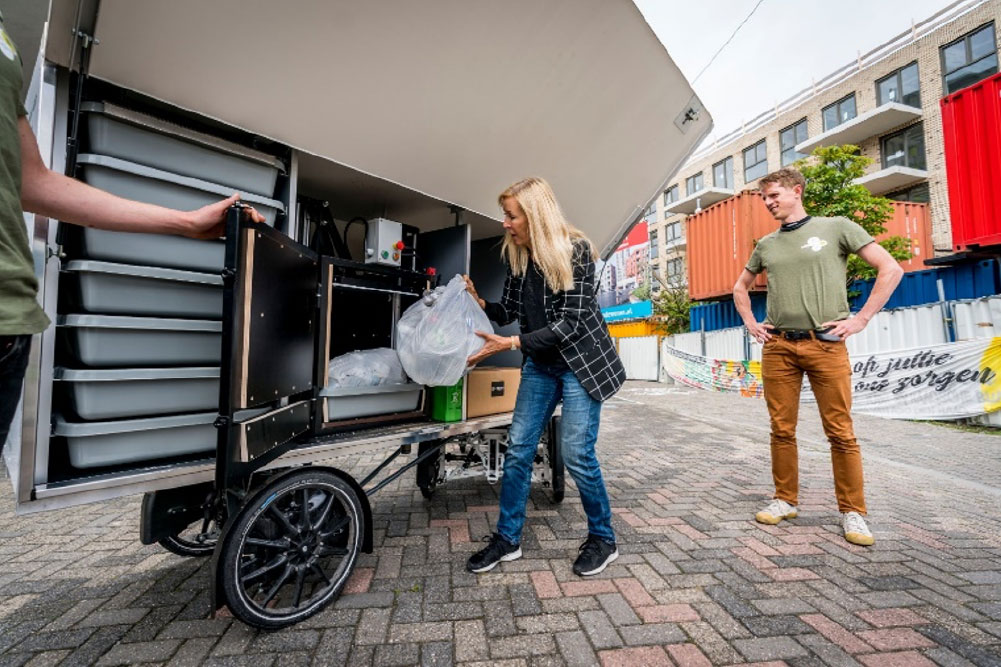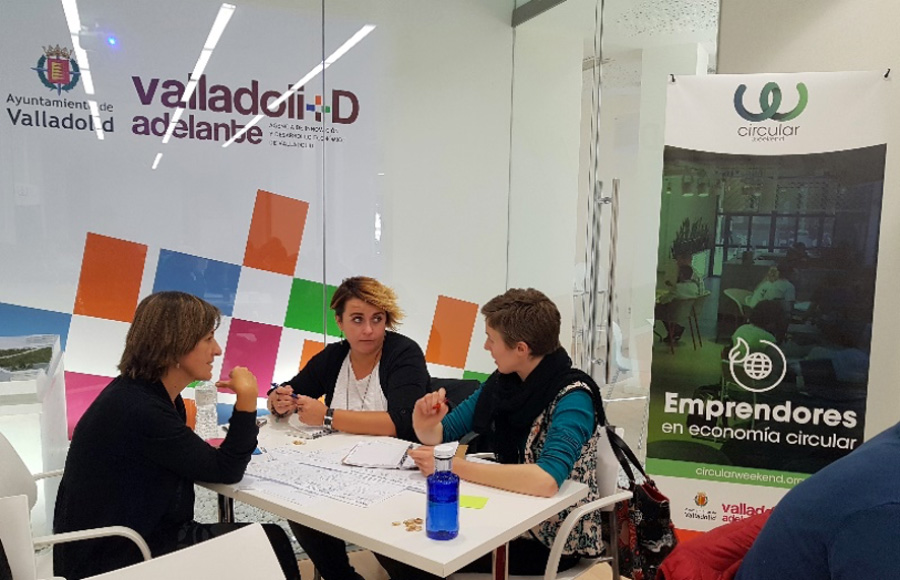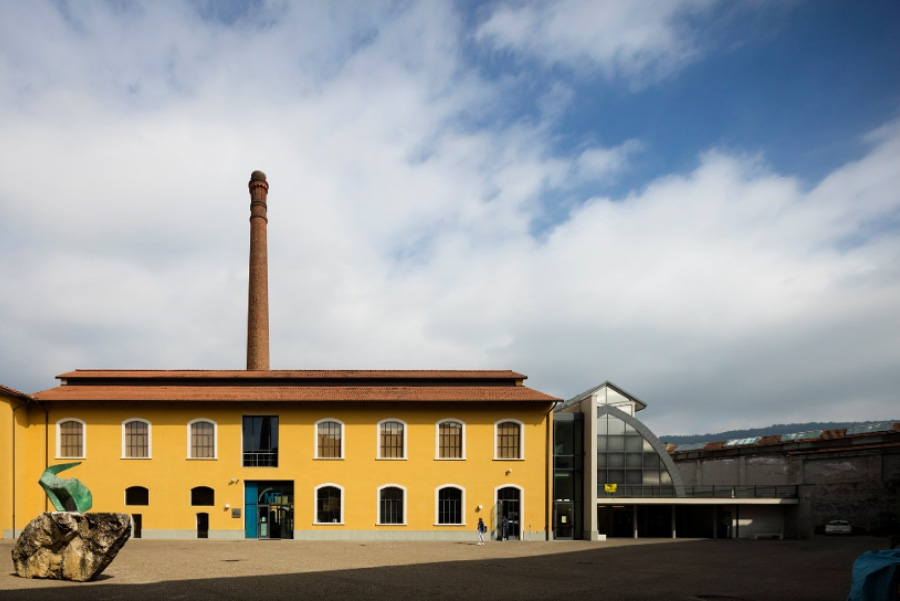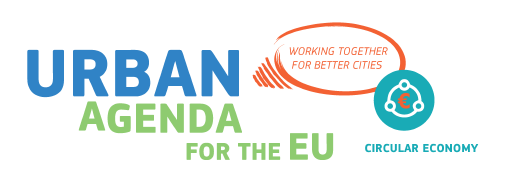
Circular Flanders ![]() is a partnership of different stakeholders that want to set up initiatives related to the circular economy. The story of Circular Flanders started in 2006 when OVAM (the Public Waste Agency of Flanders) invited a group of committed experts to discuss the necessity of making Flemish materials management more sustainable. The group developed into a think-tank and informal network, and later into the Flanders’ Materials Programme (VMP). In 2017, Circular Flanders brought together earlier initiatives and started working on its vision 2050.
is a partnership of different stakeholders that want to set up initiatives related to the circular economy. The story of Circular Flanders started in 2006 when OVAM (the Public Waste Agency of Flanders) invited a group of committed experts to discuss the necessity of making Flemish materials management more sustainable. The group developed into a think-tank and informal network, and later into the Flanders’ Materials Programme (VMP). In 2017, Circular Flanders brought together earlier initiatives and started working on its vision 2050.
The strength of Circular Flanders is its broad societal support. The organisation is a true partnership that bring together governments, companies, society and academia. This collaborative approach ensures an effective structure in supporting the circular economy.
A true circular partnership
Circular Flanders recognised that the circular economy requires cross-sectoral collaborations. This is not only reflected in the cross-sectoral projects that are funded. On the contrary, Circular Flanders brings together different actors at all levels of the organisation. The organisation is a public-private partnership with representatives of 20 organisations from different sectors that together decide on the strategy and actions of the partnership. These representatives are expected to think and act according to the shared ambition of a circular Flanders. This broad representation ensures that Circular Flanders develops in line with the economic and societal needs of the region. In addition, it provides broad commitment to the strategy and goals.
The collaborative approach is also reflected in other initiatives of the partnership. Circular Flanders organises many events and projects to bring partners together. Funded projects are expected to share their results, stimulating uptake by other partners in the region. To involve society, a workshop ![]() has been launched where participants have to imagine that they live in a circular economy and have to come up with possible barriers and solutions. Circular Flanders also focusses on education, for example by hosting boot camps on the circular economy targeted to young people.
has been launched where participants have to imagine that they live in a circular economy and have to come up with possible barriers and solutions. Circular Flanders also focusses on education, for example by hosting boot camps on the circular economy targeted to young people.
Funding circular projects
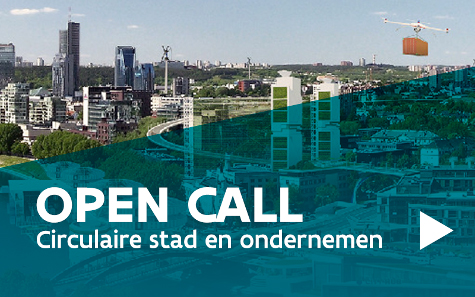
The partnership uses part of its budget to fund circular economy projects. With an annual open call, they invite businesses and other stakeholders to propose circular economy projects. The open calls have been successful since the starting 2017 with 135 projects supported. The annual evaluation of the open call helps Circular Flanders make the instrument even more effective.
Formulating the objectives and requirements as clearly as possible reduces the percentage of proposals that focus only on recycling. The partnership asks explicitly what the role of the involved partners is and what the foreseen division of work is, in order to improve the quality of the proposals submitted by the applicants. In the experience of the partnership, it is more important to select the projects carefully rather than monitoring them. Often, the cross-sectoral character of the project proposals requires that the evaluation is conducted by different experts. Circular Flanders has therefore set-up a complex project evaluation process, combining external reviewers with technical experts from OVAM (if needed).
Compliance requirements for projects, on the other hand, are minimal and the monitoring of projects lies with the project coordinator. This is a deliberate decision of Circular Flanders, in consideration of the risk inherent in innovative circular economy projects. In other words, Circular Flanders already assumes that not all projects will be successful. By embracing this inherent risk, they expect more interesting circular projects to participate in the calls, and that also unsuccessful projects provide opportunities to learn and inspire others.
Finally, Circular Flanders has learnt to make its subsidy scheme as easy and smart as possible, for example through decreasing the administrative burden and by providing funding before the project starts. In this way, the partnership lowers any financial or administrative thresholds for beneficiaries.
Lessons learnt
Circular Flanders has continuously improved its circular funding instrument. Some general lessons for other organisations that want to support the circular transition are given below.
- Broad societal support helps in identifying relevant circular topics and eventually good projects. Moreover, it increases the likelihood that project results are implemented as planned.
- To improve the quality and diversity of projects, it is important, as a funder, to reflect on previous calls for projects and see how these can be improved. In the case of Circular Flanders, asking more specific and clear questions helped to improve the instrument and the turnout of the calls.
- Letting go of the expectation that all projects have to be successful could lead to more interesting and innovative project proposals being submitted. It should be recognised that also less successful projects can provide important lessons and inspiration.
- Providing subsidies also leads to the optimisation of policy and laws, as they allow for the noticing of practical bottlenecks that would not have been discovered if the subsidies had not been granted.
More information
Circular Flanders’ case studies ![]()
Contacts
Brigitte Mouligneau (transition manager)
Veerle Labeeuw (circular economy facilitator)
